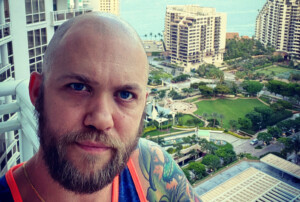
There are many articles about what success is or how to be successful.
Personally, I believe it’s an important topic to study on a regular basis so you can learn the different perspectives and avoid a critical trap which I’ll talk more about later. Some people study success their whole life!
Those are two different questions and it’s important to understand the “what” to get to the right “how”.
The “What” (Level setting on what success is)
We’ve all probably said to ourselves at one time or another, “if I could just make $XXX about of money, I would be happy.”
After all, how great would it be to have all of your basic needs met, and then plenty left over for fancy cars , first-class vacations, maybe a boat or fine dining whenever you wanted?
Making money is a good thing, there’s nothing wrong with it. It might not buy happiness but it can make life easier and even allow you to impact other people’s lives positively.
The fact of the matter is that we live in an economic system that requires us to have money to live and put food on the table.
But there is a trap to be aware of.
The trap is when you’re led to believe that abundant wealth alone will get you to the destination of success and happiness. For example, studies have actually shown that once you cover your basic needs, increased wealth doesn’t create increased happiness.
While it doesn’t hurt to have those things it’s important to remember there is so much more to life.
Real riches that no money could ever buy- like meaning, fulfillment, family, generosity and appreciation – are found through other means, not simply through amassing money. We have to consider the full spectrum of human needs.
Many wealthy people have battled depression, anxiety, substance abuse, or have suffered from poor relationships. The point is this: those who are filthy rich have problems just like everyone else.
We recently had the honor of interviewing Tony Robbins for the March 2017 edition of our magazine Change Creator. This is a guy who has studied success all his life and is a world of wisdom. My first question to him was, “how do you define success today and has it changed over time”?
He shared a ton of insight and while I’m not going to get into all of it here, these were some of what I felt were his most important points:
- The more money you make, the more you spend and spending money is not fulfilling.
- A state of gratitude and appreciation are essential, as Tony believes that without those things, you have nothing.
- Pursuing your mission or your passion is a critical part of fulfillment and usually is not driven by money.
Would sitting at a desk doing accounting all day for 40 years be fulfilling? Sorry to any accountants reading this but not for me! Can you live your life purpose and make great money, hell yes! But that money becomes a byproduct of your passion.
Let’s talk about the how.
The “How” (3 Lessons for Success)
Every year the Skoll Foundation gives awards to entrepreneurs that are changing cultures and impacting lives through the living they make or the mission they are on. I have now interviewed 3 of those award winning social entrepreneurs and their stories are nothing short of inspirational.
If you’re not familiar with the Skoll Foundation, it was founded by Jeff Skoll in 1999 and is a foundation that drives change by investing in social entrepreneurs and innovators who help to solve the world’s most pressing problems.
“Bet on good people doing good things” ~John W. Gardner
A social entrepreneur is a person who uses entrepreneurial skills to solve a social and/or environmental problem by shifting the current “norm” of a system or culture. Systems come in all shapes and sizes.
These social entrepreneurs are motivated by a passion to help others. They are impacting lives and making the world a better place. That is something that is very fulfilling and will motivate you to wake up each day without the alarm clock. I like to call that the “Christmas Eve Effect”.
3 Priceless Lessons Learned
A quick tip before I dive into it. The mental game is a HUGE. Why? Because what you think drives your actions.
“Whether you think you can or you think you can’t, you’re right.” ~Henry Ford
Lesson 1: Remain curious but stick to core beliefs
Mallika Dutt is the founder of the organization, Breakthrough and is a 2016 Skoll Foundation social entrepreneur awardee. She’s an energetic and passionate woman who is no stranger to taking risk. I was lucky to chat with her for our August 2016 edition of the magazine. Her organization, Breakthrough, is a global human rights organization striving to build a world in which violence against women and girls is unacceptable. This is a big challenge in India where she grew up. Her approach doesn’t just target women, her message is for all human beings to thrive.
How do you tackle such an overwhelming issue? For Mallika, creating deep radical change started with pop culture. She decided to experiment with a music album and music video. Taking on pop culture to talk about an issue was a revolutionary idea. Everyone told her that nobody wanted to hear music that was preachy.
Mallika even got Virgin records to back her with marketing support but they also did not agree with the music video storyline, saying it won’t work, and pulled their financial backing for development of the video. This meant Mallika had to figure out how to fund the development herself.
“Everyone in the entertainment industry thought i was crazy.” ~Mallika Dutt
Mallika many many small changes but the message was her core belief so she didn’t change direction but found a poetic writer to create powerful lyrics and studied all the great music videos she could find to understand what works.
Breakthrough’s video – Mann Ke Manjeere’ became the winner of the Screen Awards 2001 in India and nominated for MTV’s “Best Indipop Music Video”, reaching 26 million households.
Lesson Learned: Remain curious but stick to core beliefs
“Remain curious, engage, listen to the wisdom of others and then check back in with yourself, your heart and your gut and what you really believe in and at every point go through that dance because there will some things that are very easy to shift and change and there will be other things that are so core to what you believe in that giving up on that means giving up on yourself.” ~Mallika Dutt (Change Creator Interview)
When you’re pursuing something that aligns to your values and is deeply important to you it is a mission. It’s top priority.
You can either be swayed by others to give up on your belief or you can be so passionate that you become stubborn and forget to be curious and listen to the wisdom of others.
As Mallika showed, it’s important to stick to your core belief and at the same time continue to listen to others and change the easy things that can be shifted. Staying the course requires courage and persistence.
Lesson 2: Ideate and Explore the Unknown
Dr. Harris Harris (or Al as he prefers) is the founder of the company Blue Ventures. He is a Skoll Foundation social entrepreneur awardee, received the WWF Duke of Edinburgh conservation award and is an Ashoka fellow. Al was a reluctant social entrepreneur I spoke with for our December 2016 edition of Change Creator magazine. His story is truly inspiring.
As a biologist with a passion for coral reefs and marine life he learned that the native peoples of Madagascar, the Vezo, and trawlers were taxing the ecosystems at an alarming rate. For the Vezo, it was about putting food on the table for their family.
Al quickly realized that something had to change which meant discovering new tools and approaches to engage the people. However, he didn’t have money or a plan to do such work. “I decided to hang up my diving fins and try to develop business-based solutions to the problems I was seeing”, said Al. This is when Blue Ventures was born.
Venturing into the unknown, Al, began experimenting with new conservation techniques working closely with the Vezo. Those ideas were met with much skepticism at first. How do you ask someone not to fish when their families need food on the table?
But the experiment turned out to be a success and the Vezo became believers. Neighboring communities grew interested in replicating the process which then scaled up the coastline. At the heart of the Blue Ventures business model is eco tourism funded their conservation efforts. Actually, during the early phases of Blue Ventures, people just started sending Al checks because they were eager to take eco-tourism trips. Living in a world where money needs to be made, Al made financial sustainability a must from the start and built his model around paying his team and other expenses. Without it, the lights go off.
As you might have heard, innovation is a must in the world of entrepreneurship. New challenges tend to require a willingness and the courage to explore the unknown for new solutions. Al never ran a business or executed the solutions he hypothesized. He fully assessed the situation and determined what he would need to run an experiment. He was willing to take a risk to test a new idea he believed in.
Lesson 3: Mission & Money Work Together
When people think of social impact and the idea of social entrepreneurship they might relate it specifically to nonprofit structures only or believe that good money cannot be earned. That’s simply not true and has been proven otherwise many times. Running an impact business has proven to do quite well. Look at TOMs or Sevenly.
Al’s top priority was conservation. But after assessing the problem he quickly realized he would need to figure out a way to fund his mission. That is where eco-tourism came into play. This created jobs for the locals and funds his business extremely well. At the same time this model exposes more people to the beautiful natural habitat and people that live there giving them an amazing experience to remember.
While money was not the primary reason for Blue Ventures creation, it was important that his business model baked in financial sustainability.
Blue Ventures would not have been able to scale and expand its conservation efforts without a smart business model. Al believes that the business model was key because using donations as an ongoing source of funding is unstable and vulnerable.
The mission and passion are the motivator or purpose and the money is a tool for growth and continued success.
Final Thoughts
With today’s world of endless marketing and an economic system driven by money it’s easy to lose sight of what’s important. We need to keep in mind abundant wealth alone will not take you to your destination of success and happiness.
Don’t be fooled. As we can learn from those who study the dynamics of success and what it truly means in life, we find that it goes far beyond the collection of material possessions or money. It captures the heart of a person and what they were born to do in life, their mission and purpose. These are elements of the human condition that truly motivate us and provide a sense of fulfillment.
Mallika Dutt and Dr. Alasdair Harris were both motivated and driven by problems near to their heart. This gave them the energy and will to persist through even the greatest challenges. They were unstoppable and believed deeply in what they were doing.
Their success can teach us powerful lessons that should be considered seriously. Always remain curious and listen to the wisdom of others so you can pivot where possible but don’t change your core belief or primary mission. Both stories demonstrate this.
When approaching new challenges you have to be willing to explore new solutions that might not work out. We have all heard that you need to take risk and while this sounds basic, it holds a lot of truth. Again, both stories illuminate this very well. I hope you see the trend now with these award winning social entrepreneurs.
No business can be sustained or scale without a smart business model for income. It’s how the world works so bake it in from the start but don’t let be your mission, it’s a tool to support the mission.
“Great companies start because the founders want to change the world… not make a fast buck.” ~Guy Kawasaki






